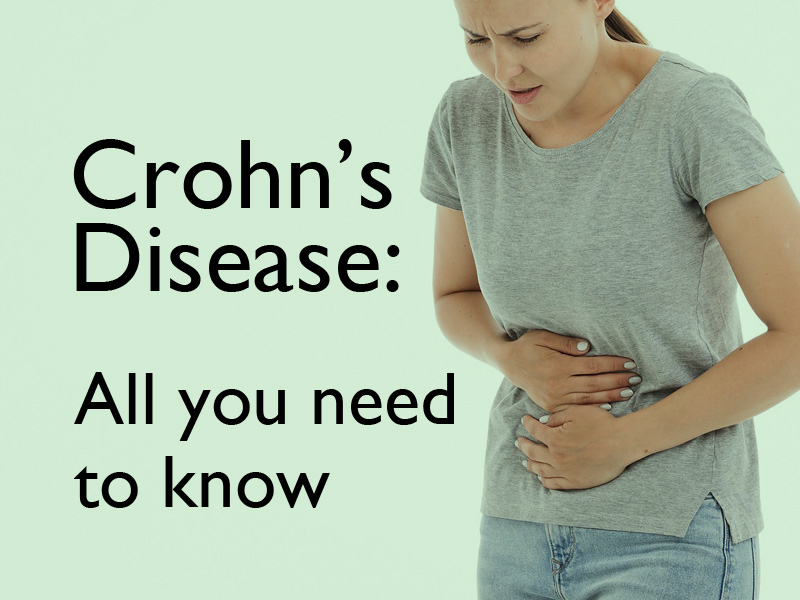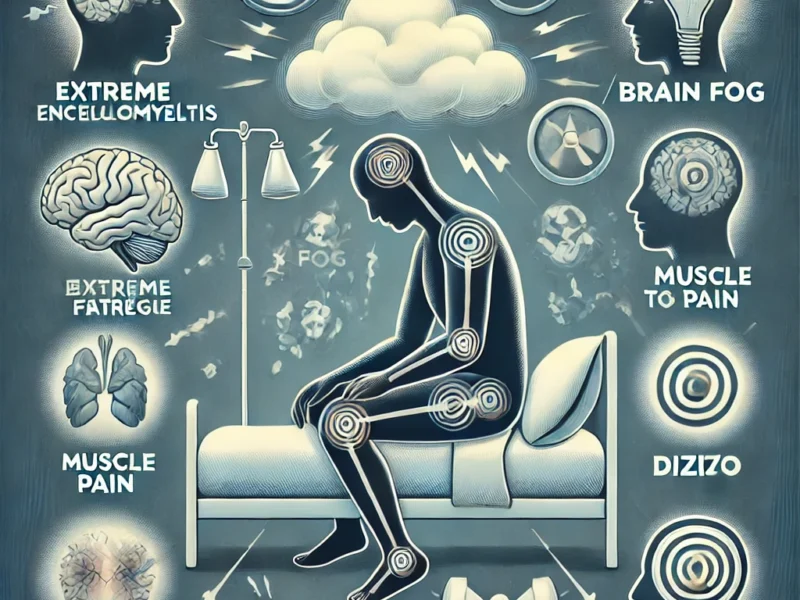
- Understanding Crohn’s Disease: Symptoms, Causes, and Management
Understanding Crohn’s Disease: Symptoms, Causes, and Management
Crohn’s disease is a chronic inflammatory condition of the gastrointestinal (GI) tract, classified as one of the inflammatory bowel diseases (IBD). This article delves into the various aspects of Crohn’s disease, including its symptoms, causes, types, diagnosis, treatment options, and lifestyle management.
What is Crohn’s Disease?
This disease can affect any part of the GI tract from the mouth to the anus, but it most commonly affects the end of the small intestine (ileum) and the beginning of the colon. It can involve multiple segments of the GI tract or be continuous in some areas. This inflammation can penetrate deeply into the layers of the bowel tissue, leading to a range of complications and symptoms【21†source】【22†source】.
Symptoms of Crohn’s Disease
Common Symptoms
The symptoms of Crohn’s disease can vary widely among individuals and can be mild to severe. Common symptoms include:
- Diarrhea
- Abdominal pain and cramping
- Blood in the stool
- Fatigue
- Weight loss
- Reduced appetite
- Fever
These symptoms can be persistent or can come and go, a pattern often referred to as flare-ups and remission【24†source】【27†source】.
Less Common Symptoms
Other symptoms that some individuals may experience include:
- Mouth sores
- Inflammation of the skin, eyes, and joints
- Liver or bile ducts inflammation
- Delayed growth or sexual development in children
Complications
Crohn’s disease can lead to several complications if not managed properly:
- Intestinal obstruction due to chronic inflammation causing thickening of the intestinal wall
- Ulcers in the intestines and other areas of the digestive tract
- Fistulas, which are abnormal connections between the intestine and other organs
- Malnutrition resulting from malabsorption of nutrients
- Increased risk of colon cancer【21†source】【24†source】【26†source】.
Causes of Crohn’s Disease
The exact cause of Crohn’s disease remains unknown, but several factors are thought to contribute to its development:
Immune System
An abnormal immune response where the body’s immune system attacks its own GI tract, mistaking harmless substances, like food or beneficial bacteria, for foreign invaders.
Genetics
There is a higher risk of developing this disease if there is a family history of the condition, indicating a genetic predisposition【23†source】【27†source】.
Environmental Factors
Certain environmental factors, such as a high-fat diet, smoking, and nonsteroidal anti-inflammatory drugs (NSAIDs), may increase the risk of developing Crohn’s disease. However, there is no evidence that specific foods cause Crohn’s disease【24†source】【27†source】.
Types of Crohn’s Disease
It can affect different parts of the GI tract, and the types are classified based on the location of the inflammation:
Ileocolitis
This is the most common form and affects the end of the small intestine (ileum) and the colon. Symptoms include diarrhea, cramping, and pain in the lower right part of the abdomen【23†source】.
Ileitis
Affects only the ileum with similar symptoms to ileocolitis. Severe cases can lead to fistulas or inflammatory abscesses in the lower right abdomen【23†source】.
Gastroduodenal Crohn’s Disease
Affects the stomach and the beginning of the small intestine (duodenum). Symptoms include nausea, vomiting, weight loss, and loss of appetite【23†source】.
Jejunoileitis
Characterized by patchy areas of inflammation in the upper half of the small intestine (jejunum). Symptoms include mild to intense abdominal pain and diarrhea【23†source】.
Crohn’s (Granulomatous) Colitis
Affects only the colon, with symptoms such as diarrhea, rectal bleeding, and disease around the anus, including abscesses and ulcers【23†source】.
Diagnosis of Crohn’s Disease
Diagnosing Crohn’s disease involves a combination of tests and procedures:
Lab Tests
- Blood Tests: To check for anemia and signs of inflammation.
- Stool Tests: To rule out infections and check for inflammation markers.
Imaging Procedures
- CT Scan: Provides detailed images of the GI tract to assess inflammation severity.
- MRI: Particularly useful for detecting fistulas around the small intestine and anus【28†source】.
Endoscopy
- Colonoscopy: Allows direct viewing of the colon and terminal ileum, and the ability to take tissue biopsies.
- Upper Endoscopy: Examines the upper GI tract.
- Capsule Endoscopy: A swallowed capsule with a camera provides images of the small intestine【28†source】.
Treatment of Crohn’s Disease
While there is no cure for this disease, several treatments can help manage symptoms and induce remission:
Medications
- Anti-inflammatory Drugs: Steroids and aminosalicylates to reduce inflammation.
- Immune System Suppressors: Azathioprine, methotrexate, and biologics to suppress the immune response.
- Antibiotics: To treat complications like fistulas and abscesses.
- Antidiarrheal Medications and Pain Relievers: To manage symptoms【28†source】.
Surgery
Surgery may be necessary when medications fail to control symptoms or complications arise. Procedures can include removing damaged sections of the GI tract, draining abscesses, or repairing fistulas【24†source】【28†source】.
Lifestyle and Home Remedies
Managing Crohn’s disease also involves lifestyle adjustments:
Diet and Nutrition
- Balanced Diet: Avoiding foods that trigger symptoms.
- Smaller Meals: Eating smaller, more frequent meals.
- Hydration: Staying well-hydrated.
- Supplements: Considering vitamins and minerals if there are deficiencies【21†source】【24†source】.
Stress Management
- Regular Exercise: Helps reduce stress and improve overall well-being.
- Relaxation Techniques: Deep breathing, meditation, and yoga can help manage stress.
- Biofeedback: A technique that helps reduce muscle tension and slow heart rate【22†source】.
Support and Counseling
- Support Groups: Connecting with others who have Crohn’s disease.
- Therapy: Consulting a mental health professional familiar with chronic illnesses【22†source】【25†source】.
Prognosis and Ongoing Research
Living with Crohn’s can be challenging, but with appropriate treatment and lifestyle modifications, many people manage to live healthy lives. Research is ongoing to better understand the causes and develop more effective treatments. Advances in biologics and other medications offer hope for improved management of Crohn’s disease【25†source】.
Research And Scientific References
- Mayo Clinic: – Detailed overview of symptoms, causes, and treatments.
- Cleveland Clinic: – An in-depth explanation of Crohn’s disease and its management.
By understanding Crohn’s disease and following a comprehensive treatment plan, individuals can manage their symptoms effectively and lead fulfilling lives.

